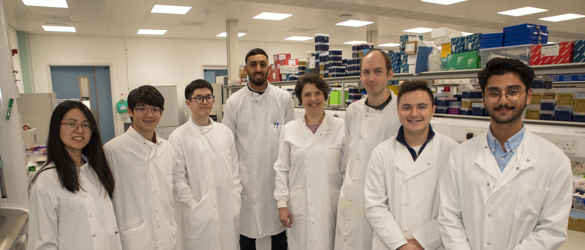Using data science to diagnose AMD sooner and detect change over time

Dr Ruth Hogg, Queens University Belfast - £113,860
Many risk factors are known to be involved in the development of age-related macular degeneration (AMD). Although we still do not know which are the most important. Using health data from thousands of older people with and without AMD, Dr Ruth Hogg aims to better understand the role these factors play.
What is the problem?
There are still many questions left to answer about how and why some people develop AMD. And why in some people it progresses faster than others. Researchers are continuously finding more factors associated with AMD. Each step brings us closer to understanding more about the disease.
What are they doing?
Dr Ruth Hogg at Queen’s University Belfast is using data from a large-scale research study in Northern Ireland called the NICOLA study. They have collected health data from thousands of older people and are tracking them over many years. Using the data collected, including blood and DNA samples, they can compare differences in people with or without AMD.
How can this help?
It is vital we improve our understanding of the development and progression of AMD. Understanding the most important factors could mean earlier detection and better prediction of how each person’s disease may develop. This could lead to a more personalised approach monitoring and treatment.
See our other projects
Since 1987 the Macular Society has invested around £10 million in over 100 research projects.
Explore more research
Beating macular disease through funding medical research and improving the lives of those living with macular disease.
Get the latest research news from the Macular Society
To hear about life-changing research and treatments, subscribe to our monthly enewsletter today. Together we can Beat Macular Disease.
Sign up to our free email newsletter



